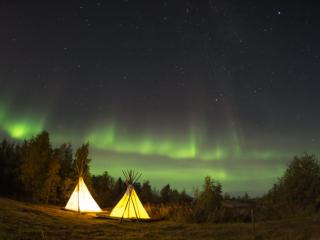Lawrence Ross delved into the "Green Book," a 1957 handbook to help black motorists find safe stops along the highway, and used it to shape a contemporary road trip that celebrated black history, culture, and business.More
Politics and History
Finn Murphy talks about his career as a long-haul driver who moves people's possessions across the country.More
Manal al-Sharif on how the most transgressive thing a Saudi woman could do was learn to drive.More
"Museum of Everyday Life" founder and curator Clare Dolan calls it "an ongoing, revolutionary experiment" — a celebration of "the mysterious delight embedded in the banal but beloved objects we touch everyday.More
In her new book, author Eula Biss reckons with a new phase in her life, moving from an apartment in Chicago to the first house her family owns. While that dream is about as American as the proverbial apple pie, Biss ruminates on the reality that it’s an impossible dream for many people.More
Journalist Adam Minter wrote a whole book about what happens to our things when we don’t want them anymore. It’s called “Secondhand: Travels in the New Global Garage Sale” Angelo asked him: why don’t we think more about the things we donate?More
When Angelo visited the House on the Rock for the first time, at first he saw a testament to one man's obsession and demented imagination. But then he started to think — does he have his own bizarre collection of stuff in his home?More
Jacqueline Plumez tells Steve Paulson that every caring woman has greater strength than she imagines and gives some examples of "mother power" in action, from MADD to the Mall of America.More
When the pandemic hit, it laid bare just how precarious parenting arrangements were — especially for single parents, parents who can't work from home, and the unemployed. Working mothers in particular lost jobs or were forced to quit to take care of children at home. Journalist Alissa Quart spoke with Shannon about why a "parenting revolution" might be on the horizon.More
While one way of making life better for parents could be changing the structure around us, author and reporter Michaeleen Doucleff thinks parents could learn to do things differently — taking cues from mothers and fathers in ancient civilizations.More
Kenyan literary scholar Simon Gikandi says you can’t understand the rise of European culture — or for that matter, the formation of the modern world — without also knowing how European thinkers demonized Africans and the very idea of "blackness."More
Patricia Pearson, author of of "A Brief History of Anxiety...Yours and Mine," discusses why she thinks Americans are so anxious.More
Jules Gill-Peterson is a historian and trans writer, and author of one of the first histories of transgender children. Speaking with Anne, she challenges us all to imagine a world with more gender freedom and a world where trans means joy.More
One of the most eyebrow-raising books of 2021 was Torrey Peters’ debut novel, "Detransition, Baby.” Rolling Stone called it “the most subversive book of the year." It’s a story about three women – transgender and cisgender – and an unexpected pregnancy.More
In Big Freedia's memoir, she tells the story of growing up gay and gender non-conforming in one of the toughest neighborhoods in New Orleans, of surviving gun violence and Hurricane Katrina, and of finding acceptance and self-expression in Bounce music.More
After a health scare, Annabel Abbs promised herself she'd make a real effort to walk every day. She fell in love with walking, even began taking multi-week walking vacations. And then she discovered she wasn't the only one — there's a hidden history of great women walkers from the past. So she decided to tell their stories.More
Six million years ago – give or take – the first early humans stood upright and started walking. Thanks to a new look at the fossil record, paleoanthropologist Jeremy DeSilva has some new theories about how and why humans took those first steps.More
One of the most famous world travelers of any age was Barry Lopez, the explorer and writer who passed away in 2020. We wanted to remember him by re-visiting Steve Paulson's interview with Lopez about his memoir – called "Horizon."More


















